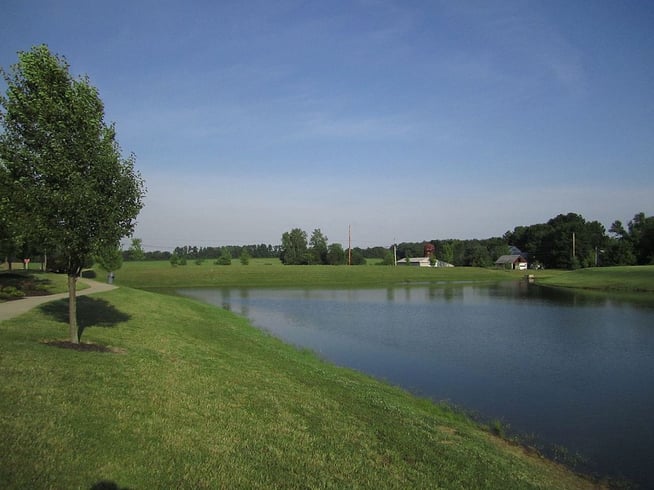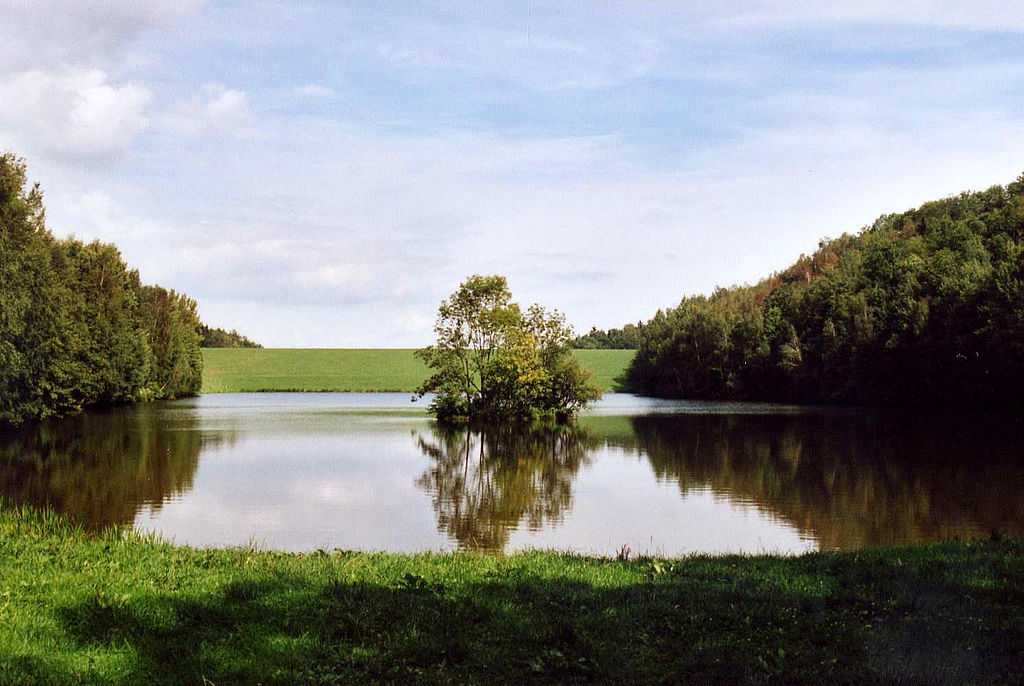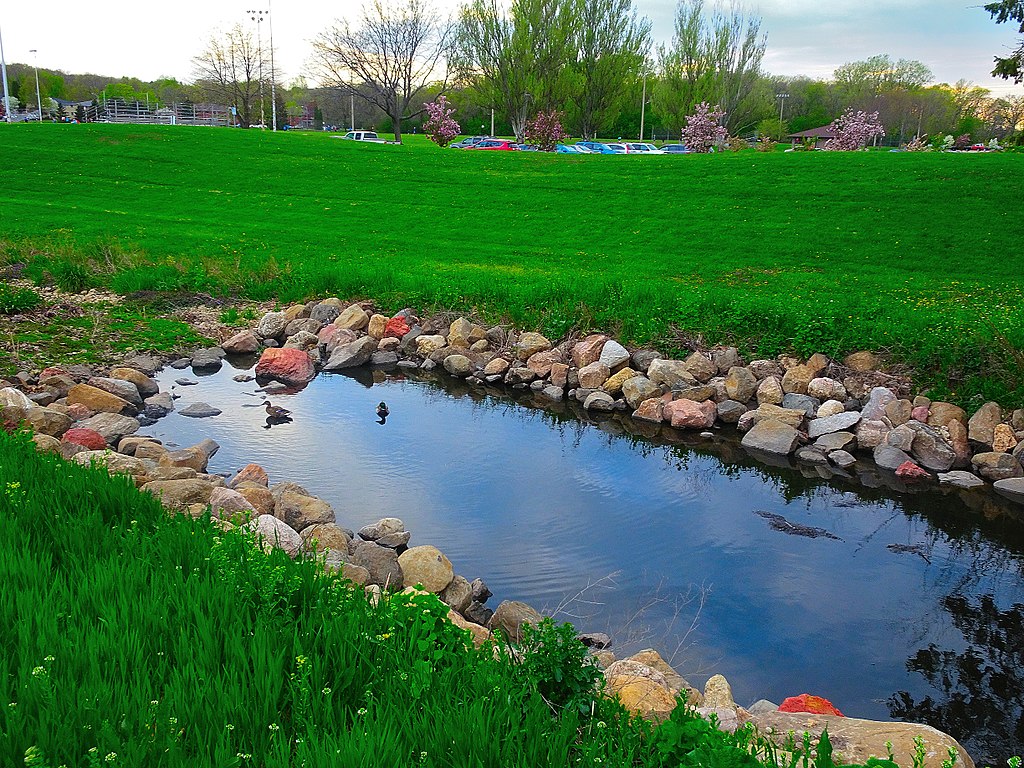Do you wake up in the middle of the night, drenched in sweat, worrying about your property’s retention or detention pond?
We didn’t think so.
Maybe you should give it a thought, though. Those things don’t take care of themselves.
Your pond might be clogged as we speak.
Here’s a look at why retention and detention pond maintenance is crucial.
Retention vs. Detention: What’s the Difference?
A common method for managing stormwater is to build a pond, or basin. There are two different kinds: retention and detention.

Retention ponds are pools of water that fluctuate in response to rain and runoff. They collect water and release it slowly, at a nice, easy rate that prevents flooding or erosion.
Detention ponds are usually dry, except when excess rain fills them up. They’re designed to hold water temporarily, then slowly drain it to another location.
They Both Need Maintenance
Whichever type of pond you have on your property, it needs attention once in a while.

Ignore it, and it can fail.
If it gets clogged by trash, debris, or weeds, it won’t drain properly.
You’ll have a big pond full of floating trash and some pretty ticked off inspectors if they show up and see the neglect.
That’s right. Your pond has to pass occasional inspections by your municipality or state environmental or water quality department to make sure it’s working properly.
They’ll check to see if vegetation or debris is obstructing the water flow.
They’ll inspect the pond banks to make sure there’s no erosion.
They’ll want to see that any concrete or brick is structurally sound.
If anything’s amiss, you’ll get a warning and 30 days to fix it.
No need to be nervous if you follow our retention and detention pond maintenance tips:
Keep Trash and Debris Out of There
Not only does it look terrible, it prevents your pond from working properly.
If it gets clogged, water won’t drain through the way it should, backing up and creating a mess.
Mowing Matters
The grass and plants around a retention or detention pond help filter pollutants from the storm water, but they shouldn’t be overgrown.
One exception is Bermuda grass. Here at Hatcher we often let that grow a bit longer, because it looks nice, doesn’t cause any problems, and it means less mowing.
Speaking of mowing, if you mow the banks of your pond in the same pattern every time, water will flow in the same spot, which can cause erosion problems.
Erosion causes soil and sediment to wash into the pond, affecting the water quality.
Hatcher mowing crews mow in a different direction each time as part of routine retention and detention pond maintenance.
No Weeds, Please
Weeds, cattails, and other invasive plants can block water flow and crowd out beneficial greenery. Weeding is a key part of retention and detention pond maintenance. Keep them out.
Keep It Clean
Mucky pond sediment can build up on the retention pond stone. Then grass and weeds take root in this sediment, and the growth can often completely obscure the stone.

Crews should occasionally clean the area.
Trust Your Retention and Detention Pond Maintenance to Hatcher
Don’t worry about those freaky pond maintenance night sweats if you trust your retention and detention pond maintenance to the pros at Hatcher.
We’ll expertly tend to all the details that keep your pond working perfectly and passing all inspections.
You need your beauty sleep.
Are you ready to rest easy about your retention and detention pond maintenance?
Talk to one of our commercial landscaping experts today! We’ll meet at your property, create a custom plan, and get you on your way to enjoying a beautiful, worry-free property.
Image sources: retention pond, detention pond, small retention pond


